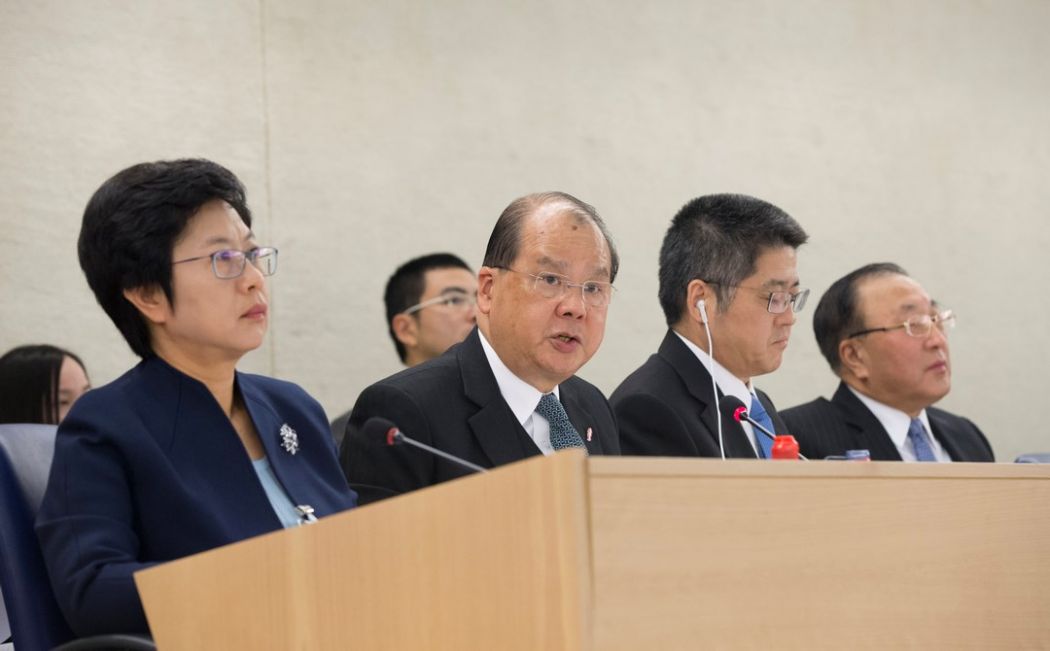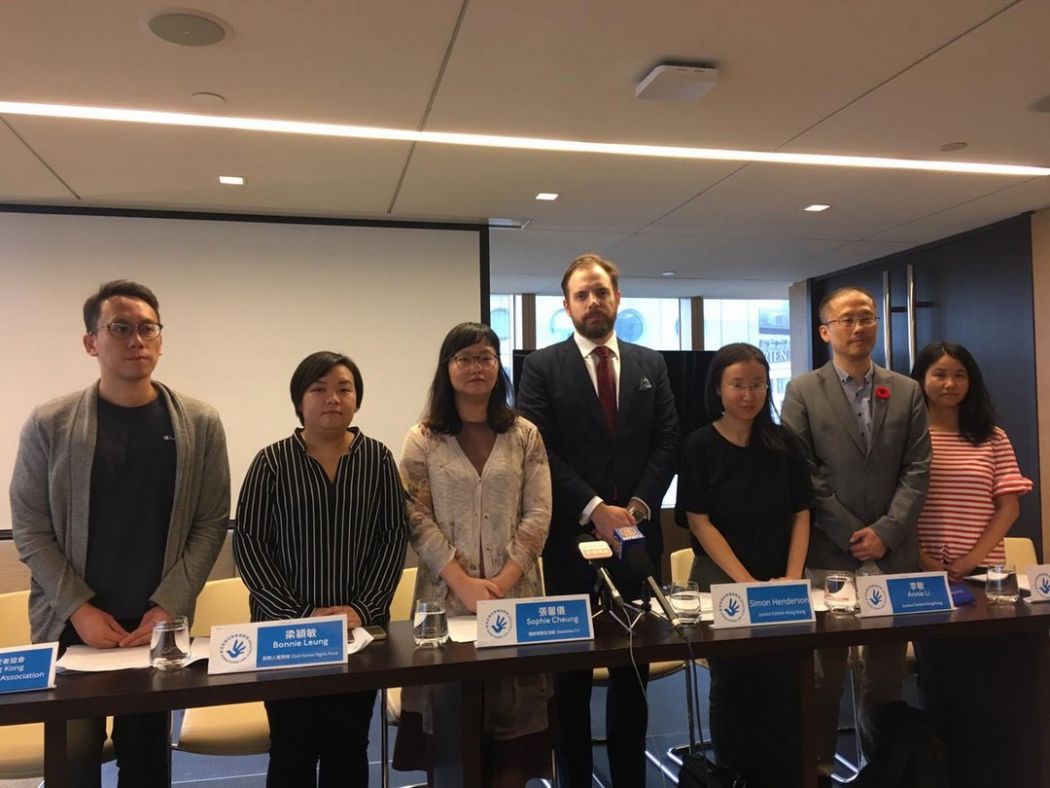Hong Kong’s second-ranking government official defended the city’s human rights record at a United Nations review session on Tuesday – a response NGOs have criticised as “evasive and disappointing.”
Chief Secretary for Administration Matthew Cheung spoke at the Universal Periodic Review for China in Geneva. At the three-hour long session, representatives from around 150 countries gave comments and recommendations on the human rights situation in China, Hong Kong and Macau.

Seven countries – Australia, Canada, Croatia, France, Indonesia, Ireland and the Philippines – gave recommendations specifically related to Hong Kong. No such recommendations were made about the city during the last iteration of the Universal Periodic Review held in 2013.
”In full: UPR Recommendations on Hong Kong – click to view”
Australia: uphold the rule of law and rights embodied in the One Country, Two Systems framework for Hong Kong.
Canada: ensure the right of Hong Kong people to take part in government, without distinction of any kind.
Croatia: that Hong Kong internally legislates to implement the Convention on the Rights of the Child.
France: guarantee freedom of speech, assembly and association, including in Hong Kong, and remove restrictions on freedom of information on the internet, in particular for human rights defenders.
Indonesia: encourage China, including Hong Kong and Macao Special Administrative Regions, to consider ratifying the International Covenant on the Protection of the Rights of All Migrant Workers and Members of Their Families in respect to Hong Kong and Macau.
Ireland: that China, including Hong Kong and Macao, introduce anti-discrimination legislation to protect all marginalised groups, including LGBTI people.
Philippines: enhance the monitoring of the Standard Employment Contract for migrant domestic workers in Hong Kong.
Cheung, speaking as the deputy head of the Chinese delegation, said that some recent concerns over Hong Kong’s human rights arose from “misconception, and a lack of understanding of our real situation,” and were “unwarranted, unfounded and unsubstantiated.”
Referring indirectly to the visa denial of journalist Victor Mallet, Cheung said the Hong Kong government does not exercise any censorship, but declined to comment on the case.
“Any concerns that Hong Kong’s freedom of speech and of the press is under threat are totally groundless. On the contrary, we maintain an environment conducive to the operation of a free and active press,” he said.

Cheung also responded on the issue of election candidates being disqualified and the ban of the pro-independence Hong Kong National Party. He said such actions were in line with the Basic Law and international human rights treaties, such as the International Convention on Civil and Political Rights.
“On the misunderstanding that some protesters were targeted for exercising their civil rights, I must clarify that these protesters were convicted not because of their beliefs or their exercising civil rights, but because of their disorderly or violent conduct in breach of the law,” he added.
‘Defensive’ statement
The Hong Kong UPR Coalition, founded in 2017 by civil society organisations, said on Wednesday that the review session highlighted a “substantial change” in foreign policy towards Hong Kong.
Coalition spokesperson Simon Henderson noted that 12 countries spoke up about Hong Kong, despite having brief speaking times and a multitude of China-related human rights issues to cover.

“The declining human rights environment has clearly harmed Hong Kong’s international reputation, despite persistent denials of senior government officials,” Henderson said.
“The Chief Secretary’s statement at the United Nations yesterday was disappointing for the coalition. We saw no new commitments, no new proposals, policies or legislation. Instead, a defensive statement was issued,” he added.
Bonnie Leung of the Civil Human Rights Front (CHRF) said the group condemned the government’s “irresponsible, wholesale denial” of rights problems in Hong Kong.
“Matthew Cheung had two tricks yesterday… he either said he would not comment on individual cases, or he would shift the ‘red line,’” Leung said, referring to the government’s zero-tolerance policy towards issues of national security.
Members of the Coalition added that they were both glad and worried that human rights issues in Hong Kong have attracted international attention, and would continue to try to start a dialogue with the government.

Henderson said that the UN Human Rights Council will consider the full report on China when it meets in March, and a mid-cycle review will be held in two and a half years’ time.
China lobbying in Geneva
Demosisto’s Joshua Wong said on Tuesday that submissions from his group and six others were removed by the UN from papers relating to China’s review.
On Wednesday, Henderson said that the exclusion was worrying and “should not have happened” because the UPR process was designed to be collaborative.
The UPR Working Group, which was responsible for the removal, had told the civil society organisations that it must “respect the sovereignty, independence, and territorial integrity of the State concerned.”
Leung said that the UN’s official response was not applicable to Demosisto’s case, since their submission was not about China’s sovereignty and did not mention Hong Kong independence.

Leung added that the incident coincided with an increased lobbying push by China.
Wong Yik-mo, a member of the NGO delegation to Geneva, said that local sources told him Chinese representatives urged friendly countries to register to speak during the UPR session, which resulted in each country having less speaking time.
In 2013 each country had 50 seconds to speak at the UPR session on China, but this year it was reduced to 45 seconds, Wong said.
